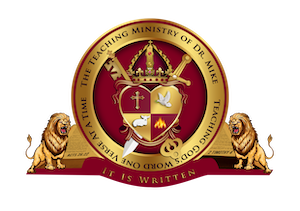Q: Dr. Mike, I’ve heard you say, that the [KJV] Bible isn’t in chronological order, in terms of when each book was written. Can you explain, please?
Q: Dr. Mike, I’ve heard you say, that the [KJV] Bible isn’t in chronological order, in terms of when each book was written. Can you explain, please?
A: When I spoke on Communion Sunday morning, my main focus was to convey what each verse meant by the Apostle Paul, from 1 Corinthians 11:23-32; because during the Communion service, most of the time, the passage is read to the congregation, before partaking of the Holy sacraments, with very little understanding of the need to examine oneself, before partaking of the wafer and wine. And in that teaching, I took a moment to express to the saints that 1 Corinthians was written (about 55 A.D.), even before the four Gospels. Matthews was written about 65 A.D; Mark about 57 A.D; Luke about 60 A.D; and John about 85 A.D.
Primarily, the books of the Bible are divided by the type of literature. Scholars have noted that Genesis through Esther are considered historical in nature, while, Job through Song of Solomon are considered poetry, and Isaiah through Malachi are considered prophecy. And the same format is granted to the books of the Bible that make up the New Testament: Matthew through Acts are historical, Romans through Jude are letters to churches or individuals, Revelation is prophecy.
The Bible not being in chronological order can sometimes make studying the Bible difficult. That is why chronological Bibles can come in so handy. A chronological Bible actually puts the content of the Bible in chronological order. As an example, Isaiah ministered during the times of the kings. So, a chronological Bible puts Isaiah’s prophecies in the appropriate place in the books of 1 and 2 Kings. A chronological Bible also takes the four Gospels and attempts to put all of the events in order.

